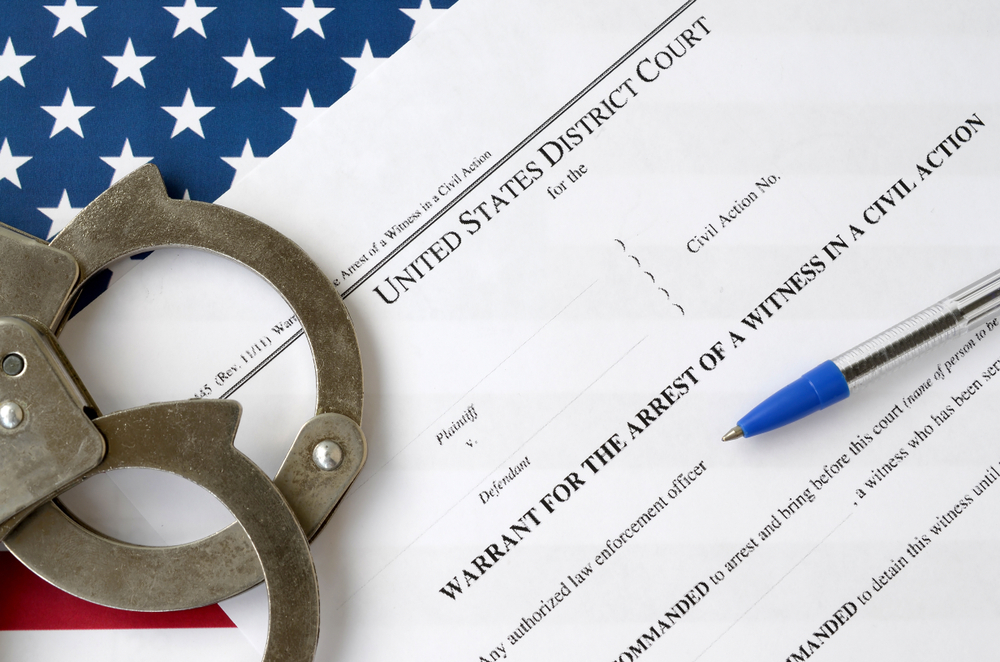A bondsman pays the bail of a criminal suspect awaiting trial in exchange for a percentage-based fee.
It’s basically a loan. This allows a suspect who lacks the funds to pay bail, to be free until their trial date without posting the full bail amount out of pocket.
When the suspect later appears in court, the bondsman is refunded the bail amount, and the suspect pays an average of 10 percent of the total bail to the bondsman.

Bondsmen provide a valuable service to the court systems by keeping jail populations down and performing a service that would be difficult (or impossible) for law enforcement officers to fulfill. They also provide a service to defendants by allowing them to reconnect with family and community support systems while they await trial, which can help facilitate a smoother passage through the legal system and improve the likelihood that they’ll be able to return to productive roles in society.
Is a Bondsman the Same as a Bounty Hunter?
If you read to the legal definitions laid out by most states, a bondsman and bounty hunter (technically referred to as a bail recovery agent), are placed under the same title. In actual practice, they’re often two different jobs. The bondsman’s role is to supply the money to a criminal suspect that allows them to walk free until their trial date.
A bail recovery agent, on the other hand, is tasked with pursuing suspects who fail to appear for the trial. The recovery agent’s job is to capture the suspect and return them to law enforcement custody to stand trial, thereby securing the return of the bondsman’s “loaned” money from the court. A bondsman is not a law enforcement officer but does have the legal authority to arrest “bail jumpers,” without a warrant, and to detain them for as long as necessary to return them to court custody. Bondsmen are required to carry professional identification when performing these duties.
Bondsmen in the United States are responsible for roughly $14 billion in bond turnover each year.

Types of Bonds
Collateral bond
As with other types of loans in the business world, some bonds require the suspect to provide collateral, such as a car or other potentially high-value possession, which the bondsman keeps if the suspect fails to appear in court. The bondsman can then sell the collateral to recover his money.
Unsecured bond
When no collateral or other means of “securing” a bail bond is provided by a defendant, he or she must sign a contract guaranteeing the bondsman will be paid if the defendant fails to appear. A co-signer may also be required.
Deposit bond
A judge may only require a defendant to pay a percentage of the total bond, often 10 percent. The amount paid is returned to the defendant when they appear for trial, less minor administrative fees.
Surety bond
This term covers the standard, percentage-based-fee type bonds described at the beginning of this article, and it may be secured or unsecured.
Personal recognizance bond
No bondsman intervention is required for this type, in which a judge deems a defendant to be a low “flight risk,” and waives bond on the basis of the defendant’s promise to appear for trial. The judge may attach other stipulations to a personal cognizance bond.
Federal bond
This refers to a bond posted for a suspect in a federal criminal case.
Immigration bond
Pertains specifically to immigrant crime. This is a three-way contract among the bondsman, the defendant, and the Department of Homeland Security.

Do Bondsmen Specialize?
With 15,000 bondsmen currently working in the U.S., many specialize in certain areas of expertise. Following are some specializations in the bail bond industry:
General bail bondsman
Licensed at the state level, this is the “general practitioner” most of us are familiar with from books and television. A general bondsman handles a wide variety of crimes, from traffic violations to first-degree murder.
Federal bondsman
As the name suggests, a federal bondsman provides services for defendants in federal criminal cases, which means they have to learn the ropes of the federal legal system. This is a risky specialization compared to being a general bondsman because federal law places greater responsibilities on its bondsmen. They may be held responsible for, not only making sure the defendant appears in court but also honors other conditions set forth by a judge, including limited travel and/or business engagements, drug testing, etc. The bondsman may be at risk of forfeiting bond if the defendant fails to meet the court’s requirements.
Add to this the fact that federal suspects are generally considered to be higher flight risks than in state and local cases, and it’s not surprising that federal bondsmen often charge their clients higher fees than do general bondsmen.
Immigration bondsman
When an immigrant is held on bond, the flight risk can be even higher in cases where they have few connection points to the community and potentially strong connections in another country. With such penalties as deportation or imprisonment looming, some immigrant defendants may be more inclined to jump bond than domestic defendants.
The legal requirements for an immigration bondsman can also be more strenuous because defendants are often placed in local jails, yet they are technically in Immigration and Customs Enforcement custody. As at the federal level, an immigration bondsman may charge a higher fee to compensate for the increased flight risk.
With so much Risk, Why Become a Bail Bondsman?
It takes a certain skill set to be a successful bondsman. They have good instincts about people and a solid, conservative approach to finances. Most bondsman strongly prefers to work in the realm of secured bonds, where a defendant is able to provide collateral, or a co-signer is willing to guarantee the bond on the suspect’s behalf. A bondsman must evaluate the suspect’s financial situation, depth of connection within the community, life history, and criminal history before putting money on the line to guarantee a court appearance.
Bondsmen are also adept at identifying payment management options for suspects at all levels of income, often offering financing plans that fit the needs of their clients.
And here’s a little-known fact outside the bond industry: in some jurisdictions, when a defendant jumps bail, the court does not keep the full bond amount paid by the bondsman. In fact, they may return as much as 95 percent of it, which significantly reduces the risks associated with this type of work.

Are You Bail Bondsman Material?
So how do you prepare for this career? Technically, most states only require a high school diploma to become a bondsman, as long as you’re at least 18 years old and can pass the licensing exam. Some states also require that you complete a pre-licensing course.
Bail bonding courses are available online, and some states provide them directly. Passing the exam demonstrates that you have a fundamental understanding of industry legalities, practices, and principles. But as indicated above, a successful bondsman needs other skills, as well.
It requires patience and a desire to help someone who has no other means of regaining control of their life during a difficult time. You should be detail-oriented, as you’ll have to wade through lots of paperwork that has to be completed with unerring accuracy.
And it’s important to be able to “read” people well. Good instincts can take you a long way toward success in this business.
Because the bond business is so entrenched in financial mechanisms, many bondsmen seek finance-related degrees. With all the other skills that matter in this industry, the money part of things has to be second nature to you. States also require that you have sufficient resources to meet all the financial obligations of the bonds you post, and you may also need to be sponsored by a surety company.
It’s sometimes an exciting business, sometimes a tedious one, but for the right person, it can be very satisfying.
For the right bail bondsman who care and wishes for everyone to be out of jail call 316-262-4100 and ask for Pat.






